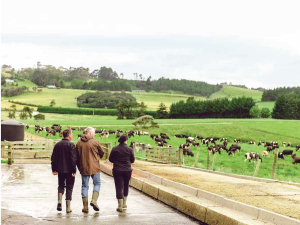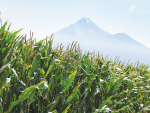It’s World Milk Day today (June 1), a time to celebrate the vital role that milk, and dairy products play in our lives and acknowledge the tremendous contributions of the New Zealand dairy sector.
World Milk Day is an annual event established by the Food and Agriculture Organisation (FAO) of the United Nations. This day highlights the importance of milk as a global food, emphasising its nutritional value and role in sustainable agriculture.
The New Zealand dairy industry is a key player in the nation's economy and a global leader in milk production. With more than 10,500 dairy farms across the country, New Zealand is home to approximately 4.7 million milking cows. These farms collectively produce over 20 billion litres of milk annually.
This vast production supports a diverse array of over 1,500 dairy products and formulations, contributing significantly to the country's export revenue. In the year ending April 2024, the dairy sector generated a remarkable $25.5 billion in export earnings. The industry also provides employment for around 55,000 people, both on and off farms, making it a vital component of the nation's workforce.
Our biggest milk processor is Fonterra, a co-operative owned by 9,500 farmers. Other processors are Open Country Dairy, owned by Talleys Group, farmer-owned co-op Tatua, Yili-owned Westland Milk and Oceania Dairy, listed processor Synlait, ofi-owned plant in Tokoroa, and part Maori-owned Miraka and Waiu Dairy plants in Taupo.
"New Zealand's dairy farmers and processing teams are a significant part of our communities and a crucial part of our nation's economy. Their commitment to producing high-quality, nutritious milk helps feed millions around the world, making everyday World Milk Day." says Morgan Watt, Fonterra site operations manager, Stirling.
Milk is not just a key economic driver but also a nutritional powerhouse. As a nutrient-dense food, milk is an essential part of balanced diets around the world. It ranks as a top five source for 23 of the 29 essential nutrients within the global food system. Milk supplies 7% of global calories and contributes 12% of the world’s protein intake. It is a critical source of many essential nutrients, including 48% of dietary calcium, 24% of Vitamin B2, 18% of lysine, and over 10% of several other key vitamins and amino acids, such as vitamins A, B5, and B12, phosphorus, and potassium.
“Milk is an everyday superfood that packs a massive nutritional punch,” says Laura Anderson, global head of nutrition, Fonterra.
“It delivers positive benefits that support millions of people all over the world to live a full and healthy life.”
On this World Milk Day, let’s take our hats off to New Zealand's dairy farmers and the entire dairy sector for their hard work and dedication. Their work not only contributes significantly to the economy but also nourishes millions of people worldwide with high-quality, nutritious dairy products.



















